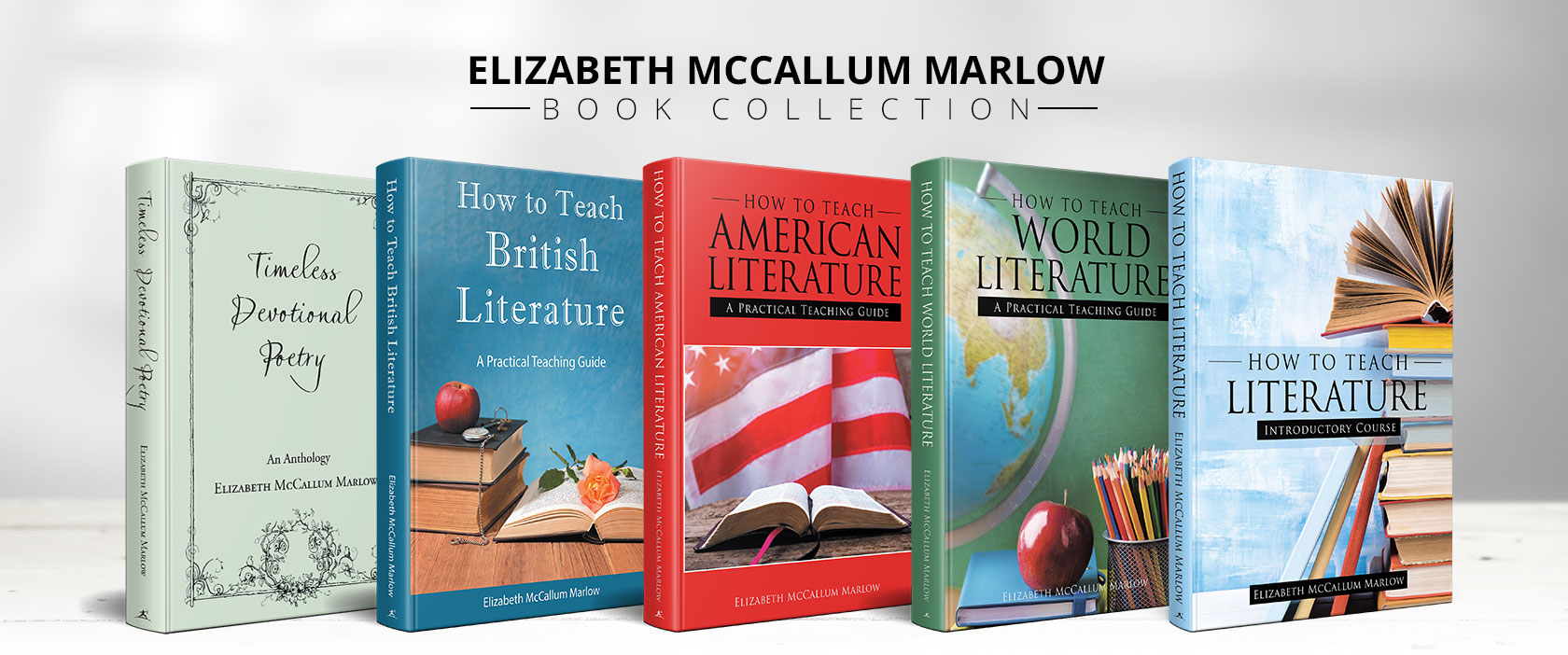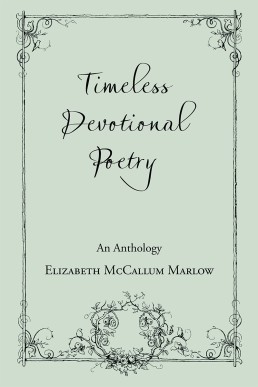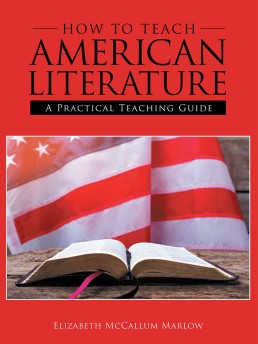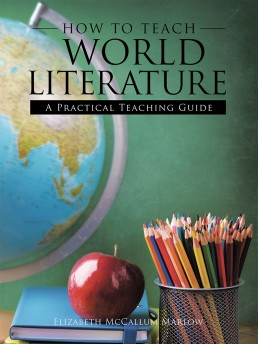
Book Overview
Timeless Devotional Poetry: An Anthology
Like other categories of classic literature, poetry per se is not in favor today, and poems that honor God are enjoyed by few readers. It is a given that the literary canon has been under attack for decades. Many canonical writers are no longer included in high school or university curricula. The great writers of the ages are frequently replaced by recent authors whose works lack spiritual content. On the other hand, Christian poetry has for centuries been set to music and sung as hymns in church services. I have included in this volume some of my favorite hymn lyrics that speak to the soul. They deserve to be read and cherished for their poetic beauty.
I started thinking about assembling this collection when I contemplated the current neglect of poetry, particularly God-honoring poetry. I have one objective in compiling this volume: to keep poetry that honors God alive for future generations. If we don’t read, reflect on, and enjoy the great wealth of Christian poetry available to us, these poetic gems will eventually be consigned to academic libraries and forgotten by the vast majority of the reading public. I am deeply troubled by the thought that my grandchildren and the rest of the world may not have access to this wealth of devotional poetry. This volume comprises a chronological record of poetry that glorifies God from the thirteenth century through early modern times.
I can think of no one better qualified to assemble an anthology of Christian devotional poetry than Elizabeth Marlow. She not only knows this poetry well but has taught it for many years to appreciative students. Best of all, she loves and serves the Lord to whom the poems in this collection direct the gaze of our souls. With this anthology, she has given us a tool with which to stir up the embers of our hearts, that our love for the triune God might blaze all the brighter. I highly recommend this collection.
—Greg Bailey, Director of Editorial, Crossway Books
Psalm 24:1 says, “The earth is the LORD’s, and all it contains, the world, and those who dwell in it.” This is a comprehensive statement of God’s total ownership and sovereignty over creation, including the works of men’s hands in crafts and arts. All that we do belongs to Him to be treasured or thrown away as dross. Elizabeth Marlow has contributed to the reclamation of literature for the glory of God in this best of all anthologies, Timeless Devotional Poetry. It is truly devotional, placing Jesus Christ in the center of the art of literature. I highly recommend this book as the premier anthology of English poetry for home school and Christian private schools, and everyone who loves to read devotional poetry.
—Reverend Tim Price
Chalcedon Presbyterian Church
Cumming, GA
Introduction to Literature Guides
This series of literature guides was written for high school teachers with specific grade levels in mind based on the difficulty of the material discussed in each book. Although written and published in reverse order, the Introductory Course, World Literature, American Literature, and British Literature were designed for 9th, 10th, 11th, and 12th grades respectively. During my teaching career, I taught the four high school courses in that order. The Introductory Course includes instruction in the basic literary elements in order to prepare younger students for the more advanced literature they will encounter in the upper high school grades. The other three books cover material that is increasingly challenging. However, a teacher could probably use any of the books for any high school grade based on the needs and abilities of a particular class. Student booklets that contain review questions and tests with answers omitted are available for each book.
How to Teach Literature
Introductory Course
How to Teach Literature: Introductory Course provides a detailed resource for homeschool or conventional teachers and administrators interested in an in-depth study of the subject. This fourth and final book in this series of teaching guides includes information not found in literature anthologies such as the following: suggestions for cultivating a love for literature, detailed analyses of each work, questions for review, test questions with suggested responses, essay topics, audio-visual aids, internet resource materials, classroom handouts, and recommended books that enhance teaching.
The author emphasizes two basic reasons for teaching literature: It is instructional and delightful. This book provides a comprehensive methodology for teaching the subject that a teacher could apply to one year’s lesson plans without further investment in time. Other books in this series are titled How to Teach British Literature: A Practical Teaching Guide, How to Teach American Literature: A Practical Teaching Guide, and How to Teach World Literature: A Practical Teaching Guide.
What do Truman Capote, O. Henry, and Homer have in common? They are all important writers happily included in Elizabeth Marlow’s How to Teach Literature: Introductory Course. Elizabeth lifts the reader to experience the beat in Poe’s writing, the stark descriptors in the work of Hemingway, the rhythm of Alfred, Lord Tennyson. She shows us that writing is not just a group of assembled words; it is a matrix of sound, color, meter, and imagery. For an English teacher, this is a helpful reminder and some fresh air. For a student, this is a gateway to the beauty and skill of great writing. To us all, this book is a way for the literature veteran to be challenged, and the newcomer to be lured into the wondrous world of literature. I wholeheartedly recommend this book.
—John Baskam, middle school and high school English teacher at Covenant Christian Academy, Cumming, Georgia
This is just the sort of guide I wish I’d had when I was homeschooling my children. Elizabeth Marlow addresses both the big picture, which is the main goal of fostering a lifelong love for classic literature in students, and everyday practical concerns. Parents and teachers will find her trustworthy in her mature spiritual grounding, her impeccable literary taste, and her wealth of experience gained from decades of teaching literature in a Christian school. The book is well organized and thorough, and her witty, down-to-earth writing style makes it a pleasure to read.
—Marcelle Tuggle, veteran homeschool mom
I was thrilled to learn of Elizabeth Marlow’s new book, How to Teach Literature: Introductory Course. It is a wonderful resource for the homeschooling parent that is well-balanced, thorough, and insightful. Especially appreciated is the chapter organization according to literary device–brilliant! Elizabeth shares her years of experience and wisdom about carefully selected content and teaching techniques. I highly recommend this wonderful textbook to any and all homeschool parents and other teachers of freshmen high school students.
Melanie Anderson, BS
Veteran homeschool mom
How to Teach British Literature: A Practical Teaching Guide
How to Teach British Literature: A Practical Teaching Guide provides English teachers, home school parents, school administrators, or anyone interested in an in-depth study of the subject with a clear, concise discussion of British literature over the last thirteen centuries. The book includes resources such as study questions and tests with suggested answers, essay topics, audio-visual aids and web-based reference material, classroom activities and handouts. Throughout the book, the author suggests methods that encourage student participation and promote enjoyment so that young people learn to appreciate the sheer fun of literary study. This book provides a comprehensive methodology for teaching the subject that a teacher could apply to a year’s lesson plans without further investment in time.
How to Teach British Literature: A Practical Teaching Guide by Elizabeth McCallum Marlow is a thorough, traditional approach to teaching classic British literature. The author’s emphases on reading and writing will aid teachers, novices, and veterans to build a solid curriculum. This volume includes many supplemental resources and student-centered activities. The guide is a valuable tool for teachers.
—Jane Ferguson, M.Ed, Ed.S
High School English Teacher and College English Instructor
Truett McConnell College, GA
University of Georgia, Athens, GA
Elizabeth McCallum Marlow has developed a quality comprehensive guide for the teaching community based on her thirty-five years of experience and her passion for literature. Teaching professionals will find her tried and true practices to be invaluable.
—Johnathan Arnold, MBA, M.Ed, D.Ed.Min
Headmaster
Covenant Christian Academy, Cumming, GA
How to Teach American Literature: A Practical Teaching Guide
How does one keep classic books alive for young people today and teach them that literature is instructional and delightful? How does the teacher foster a classroom environment that encourages student participation and promotes enjoyment so that teenagers learn to appreciate literary study? More specifically, how can teachers cover centuries of American literature with students who don’t appreciate why they should read material written centuries ago about people and issues that appear to be irrelevant to life today in a language that seems esoteric?
The author of this series of high school teaching guides addresses these issues. How to Teach American Literature: A Practical Teaching Guide provides a detailed resource for teachers or anyone interested in an in-depth study of the subject. This second book in the series covers American literature from the Puritan era to contemporary works. Included are suggestions for cultivating a love for literature, teaching techniques, detailed analyses of each work, questions for review and test questions with suggested responses, essay topics, audiovisual aids, classroom handouts, and recommended books that enhance teaching. The author emphasizes two basic reasons for teaching literature: it is instructional and delightful. This book provides a comprehensive methodology for teaching the subject that a teacher could apply to one year’s lesson plans without further investment in time.
By creating How to Teach American Literature: A Practical Teaching Guide, Elizabeth Marlow has given students and teachers of American literature a treasure. Her work is firmly founded on a deep love for literature, a hard-earned knowledge of the subject, a Christian understanding of the philosophies and issues of American literature, and thirty-five years’ experience teaching literature to high school and college students. Her knowledge, experience, and discernment have led her to select excellent content for this invaluable teaching resource: from the Puritans to the Moderns and writers of contemporary short fiction. Here are not only the old, standard works but also key poems by the wonderful, humble Anne Bradstreet, Hawthorne’s great but usually neglected satire “The Celestial Railroad,” stories by the profound Flannery O’Connor, and other gems. Here is sage advice for teachers on dealing with authors’ creations and students’ attitudes, and here are intensely practical teaching tools such as reading lists, assignments, class activities, and handouts. This is the work for the teacher of American literature–in the homeschool, Christian school, public school, and college–to have, ponder, and use. Experienced or not, you will find this book delightful, wise, and powerfully useful. Your students will receive immense practical and lasting benefits from your use of Elizabeth’s teaching guide.
—Archie P. Jones, Ph.D
University Professor and author of
Gateway to Liberty: The Constitutional Power of the Tenth Amendment
The Influence of Historic Christianity on Early America
How to Teach World Literature: A Practical Teaching Guide
How to Teach World Literature: A Practical Teaching Guide provides a detailed resource for teachers or anyone interested in an in-depth study of the subject. This third book in the series covers world literature from the ancient Greeks and Romans to contemporary works. Major literary periods are well represented by writers as diverse as Plato, Virgil, Dante, Machiavelli, Ibsen, and Harper Lee. Included are suggestions for cultivating a love for literature, teaching techniques, detailed analyses of each work, questions for review and test questions with suggested responses, essay topics, audio-visual aids, classroom handouts, and recommended books that enhance teaching.
The author emphasizes two basic reasons for teaching literature. It is instructional and delightful. This book provides a comprehensive methodology for teaching the subject that a teacher could apply to one year’s lesson plans without further investment in time. Other books in the series are titled How to Teach British Literature: A Practical Teaching Guide, How to Teach American Literature: A Practical Teaching Guide, and How to Teach Literature: Introductory Course.
The joy of discovering the rich literary legacy is greatly enhanced whenever we have the gift of wise guides to steer us clear of the many hazards pointing us toward the grand vistas of delight. Elizabeth McCallum Marlow is just such a guide, and this book of hers is just such a gift. This is a book for teachers, for parents, for writers–really, for all readers who desire to grow in their appreciation and understanding of the written word.
—George Grant, MD, D.Litt, Ph.D., D.Hum., D.Min.Cand.
Pastor, Parish Presbyterian Church, Franklin, TN
Director, King’s Meadow Study Center,
Founder, Franklin Classical School and New College Franklin
If you feel as if you are facing Everest as you contemplate teaching literature, Elizabeth’s books provide the wisdom and experience of a teacher who knows every step of the journey. Elizabeth is passionate about teaching and has a heartfelt love for literature. She has written a series of textbooks detailing techniques she has used over the years. These books are the fruit of thirty-five years of experience in the classroom. They provide a well-traveled path for teachers who want to inspire their students with an appreciation for the breadth and depth of literary works. Elizabeth’s writing style is clear and practical; she provides guidance for understanding literature through teaching techniques that make us feel as if “anyone can teach.” Elizabeth equips teachers with ways to spark a deep love for literature.
—Matthew Bullard, BA, MA
Director of Christian Education
Parkway Presbyterian Church, Cumming, GA





